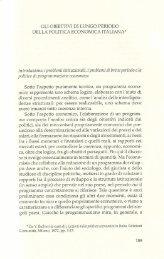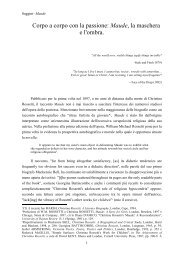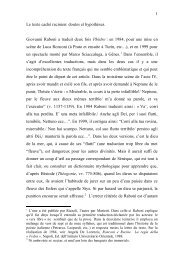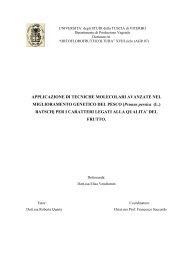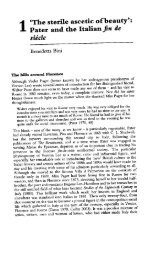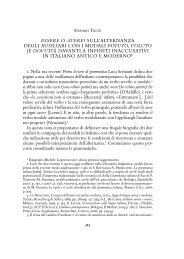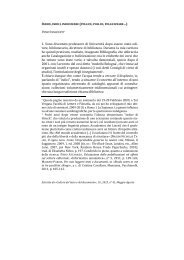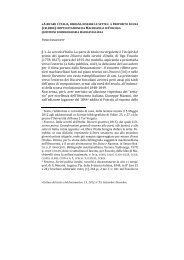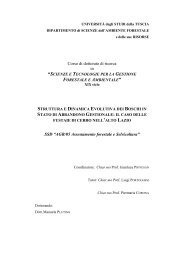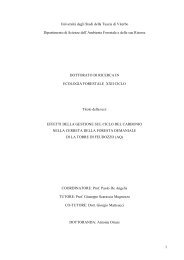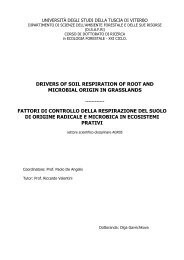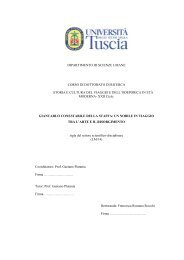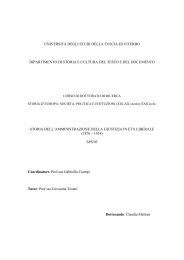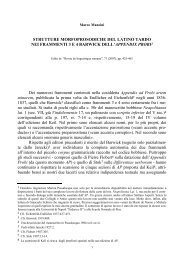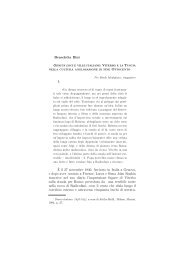1 universita' degli studi della tuscia “viterbo” - Unitus DSpace
1 universita' degli studi della tuscia “viterbo” - Unitus DSpace
1 universita' degli studi della tuscia “viterbo” - Unitus DSpace
You also want an ePaper? Increase the reach of your titles
YUMPU automatically turns print PDFs into web optimized ePapers that Google loves.
per piacere o il giovane rampollo che lo fa come esperienza di vita, tutti portano<br />
nel proprio bagaglio una guida di viaggio. Karl Baedeker, scrivendo a<br />
John Murray nel 1852, segnala efficacemente questo dilagante fenomeno sociale<br />
di come gli inglesi, ricchi o poveri che fossero, rappresentavano<br />
nell’Europa dell’800 i maggiori consumatori di manuali di viaggio:<br />
You must be aware, Sir, that a number of tourists is increasing by the year. Not only<br />
rich people set out as the weather improves, the lower classes vie with them in this respect.<br />
Students and others belonging to the latter class, wish to know in advance more or less what<br />
their journey is going to cost them, what they will have to pay at hotels, tips, etc..It is the case<br />
that England provides its contingent of travellers just as much as France and Germany, and I<br />
would venture to say that the small print-run of the French edition of my late father’s Swiss<br />
guide is taken up by largely by the English 22 .<br />
L’idea attuale che tali produzioni librarie siano sinonimo di viaggi<br />
“codificati” e superficiali e che siano strumenti ad uso e consumo esclusivamente<br />
di coloro che visitano un paese secondo i canoni moderni del turismo<br />
di massa, non sembra potersi applicare alla tradizione del viaggio in Italia in<br />
passato. Guide, resoconti di altri viaggiatori e memorie private, vengono citati<br />
accanto ai testi più illustri <strong>della</strong> storia e <strong>della</strong> storiografia artistica italiana, anche<br />
da quei viaggiatori che arrivano nel nostro paese con interessi e scopi ben<br />
diversi da quelli del semplice turista. In questo senso, risultano di particolare<br />
importanza alcune note di viaggio conservate negli archivi nella National Gallery<br />
di Londra appartenute al suo primo direttore Sir Charles Lock Eastlake.<br />
Il famoso erudito, che visitò l'Italia tra il 1855 e il 1865 con scadenze<br />
annuali, lasciò nei suoi taccuini numerose testimonianze di come le guide, le<br />
descrizioni storiche <strong>della</strong> città e vari manuali di viaggio fossero importanti<br />
22<br />
Cit. in A. Maczak, Gentelmen’s Europe: Nineteenth – Century Handbooks for Travellers, op. cit., pp.<br />
456-457<br />
16



